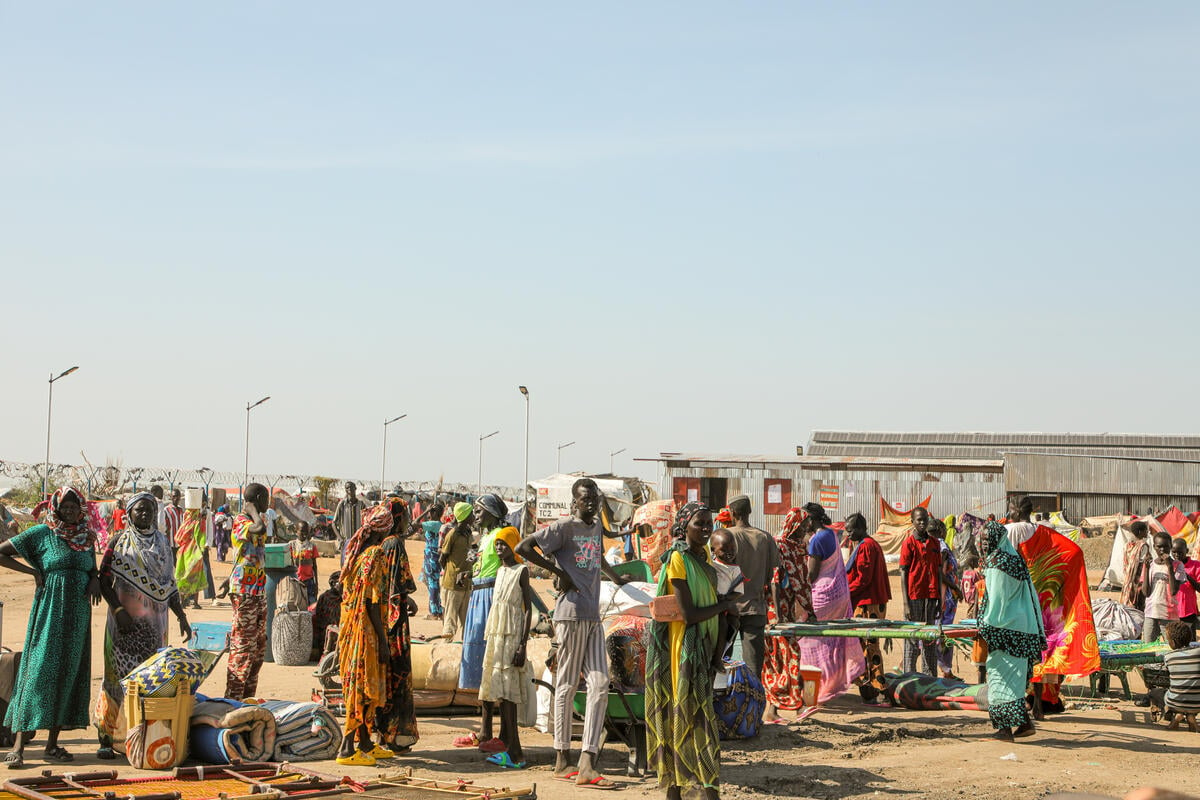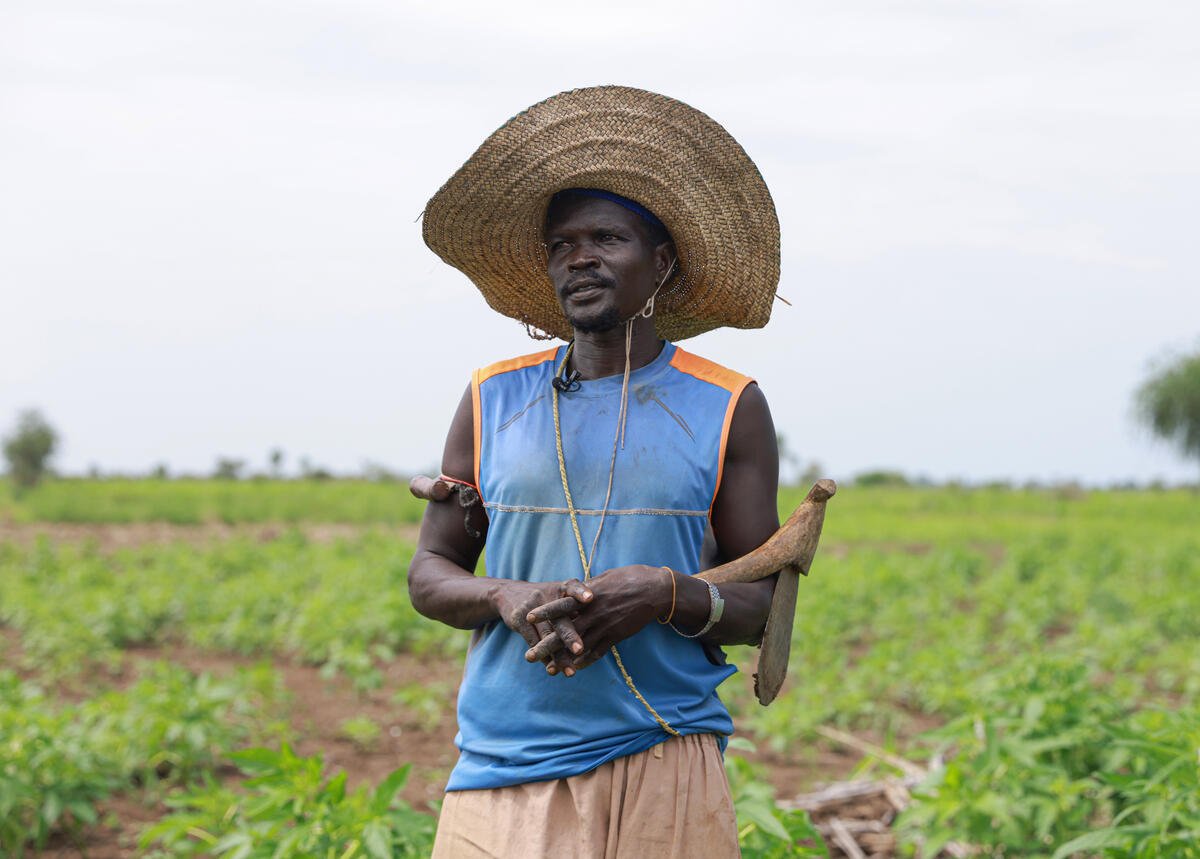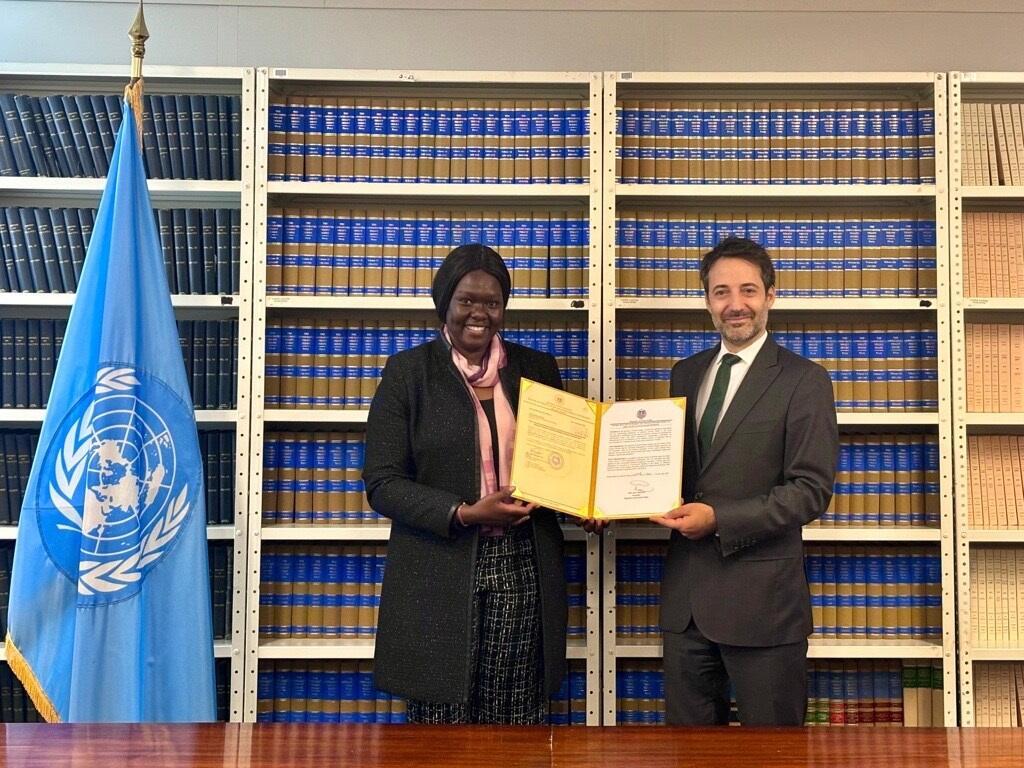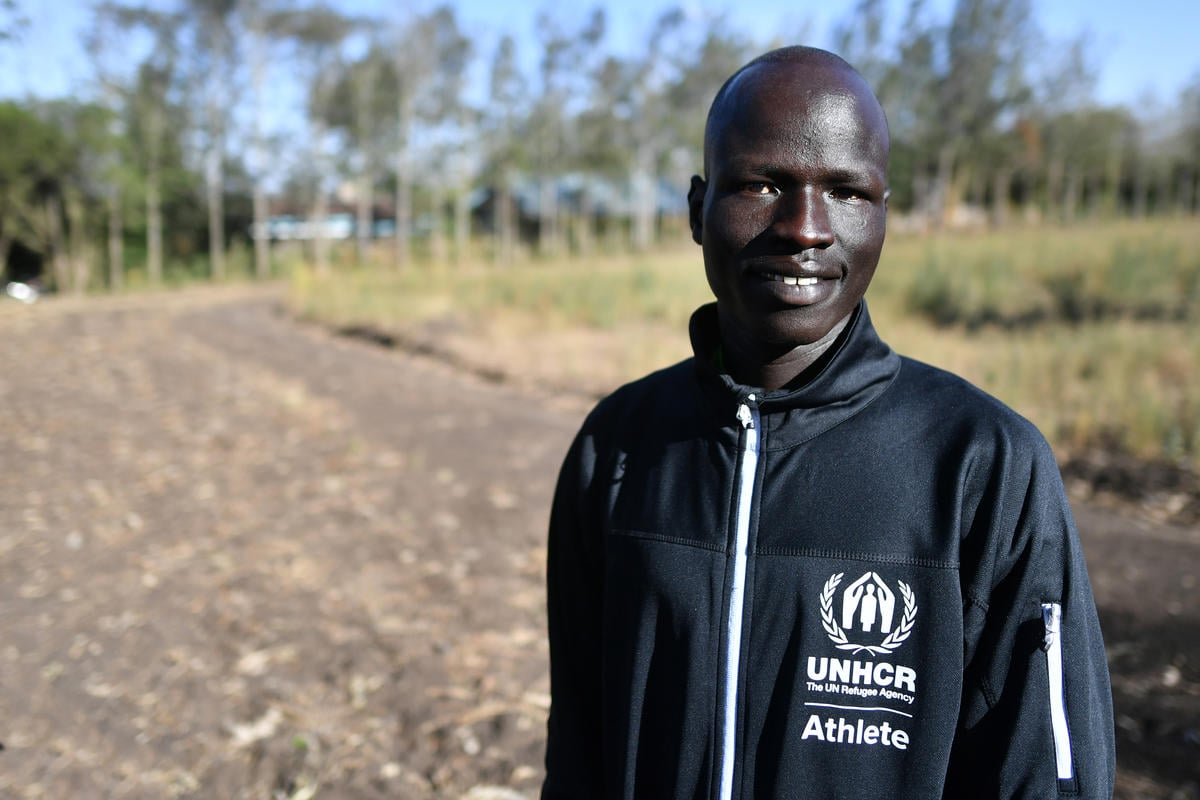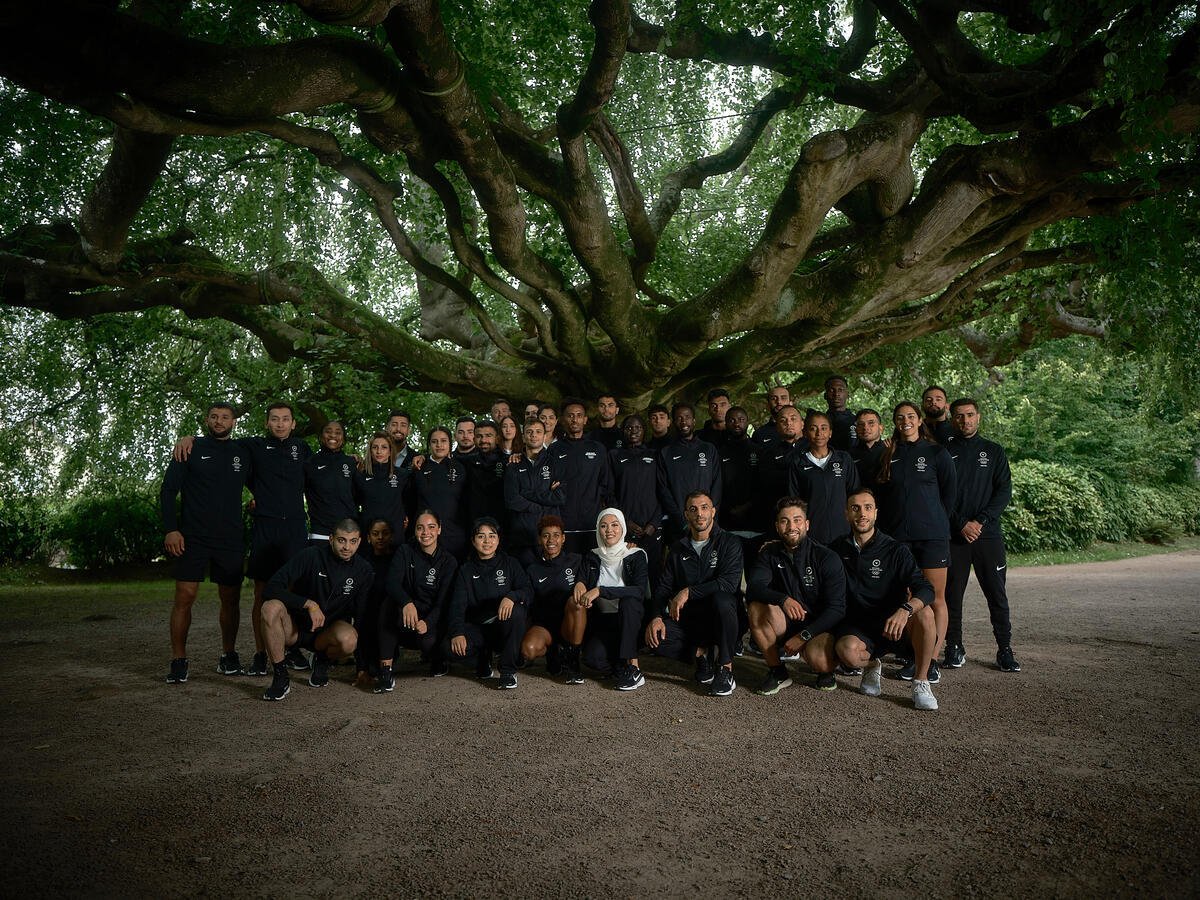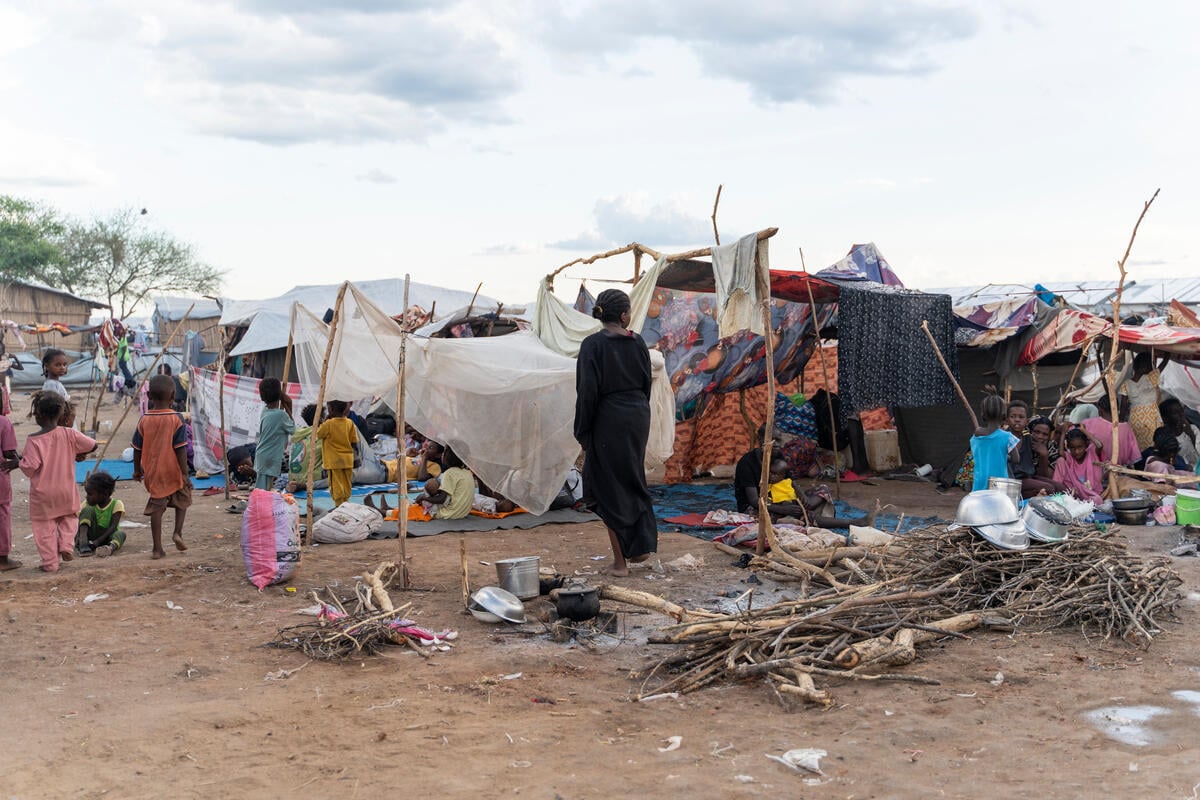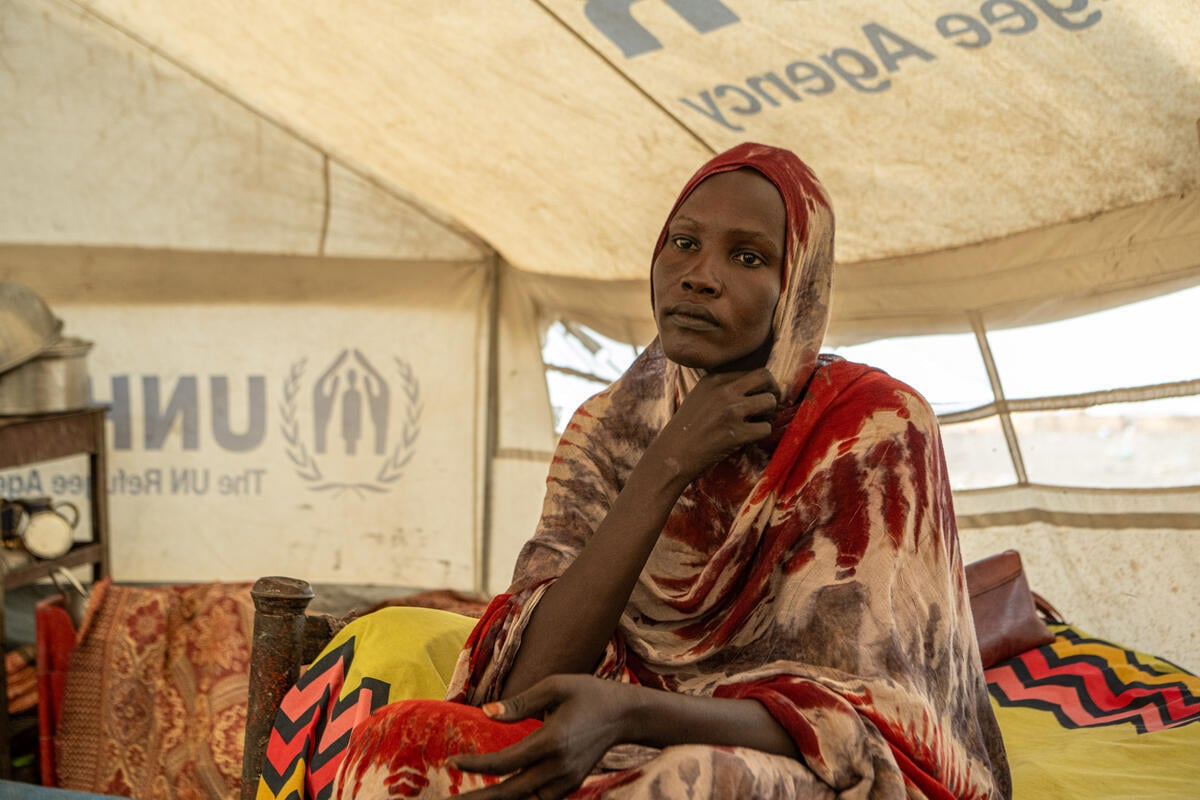Sudanese Lost Boy returns home bearing gifts
Sudanese Lost Boy returns home bearing gifts

WASHINGTON, DC, United States, February 18 (UNHCR) - Jacob Atem is back in South Sudan and bearing the gift of health some two decades after war forced him to flee his home and embark on a long and tough journey that brought him to the United States a dozen years ago.
Last April, the naturalized US citizen opened a health clinic in his hometown of Maar and the facility has since provided medical care to tens of thousands of people in Jonglei state.
"This is the home that was destroyed once, and now I am part of rebuilding it," said Atem, one of 3,600 so called "Lost Boys of Sudan" resettled in US cities with the help of UNHCR in 2001. He also sees it as a way to show his thanks to those who have "invested" in him in the past, singling out the help he got from UNHCR.
An estimated 20,000 Sudanese boys were orphaned or separated from their homes and families during Sudan's 1983-2005 south-north war. Many of those resettled in the US have done well and, like Atem, have tried to help in the development of South Sudan, which only won independence in July 2011. The help is vital at this testing time in the fledgling country's history.
South Sudan's infrastructure was destroyed during the long civil war and hundreds of thousands of people were displaced by the violence. The need for health care and education facilities is a priority, so the clinic opened by Atem and fellow lost boy, Lual Deng, through their non-profit Southern Sudan Health Care Organization, is most welcome.
Atem told UNHCR that the clinic's staff - one doctor, two clinic officers, a senior nurse, a lab technician and two pharmacists - treat about 100 people a day, many from refugee camps in Uganda and Kenya. A lot of patients receive treatment for malaria, which can be fatal.
The centre relies largely on support from donors in the United States and from international non-governmental organizations for supplies and equipment, but it also receives some assistance from armed forces medics. Atem said he was also reaching out to UN agencies, such as UNHCR, for help as well as the South Sudan Health Ministry.
Although Atem faces funding challenges, he has always been a doer and a survivor and is determined to continue helping his fellow Sudanese. The former refugee has been through tougher challenges since he was a child.
He was six or seven years old when militiamen from the north came to his home and changed his life forever. In the confusion, he became separated from his family and ended up fleeing with his cousin Michael. "He carried me, thank God, because it was impossible for me to walk on my own," Atem recalled.
Over the next few years, the two boys struggled to survive in the bush, on the look-out for wild animals and armed groups and fighting off disease and fatigue that claimed the lives of many other lost boys.
The cousins spent time in refugee camps in Ethiopia and later in north-west Kenya's sprawling Kakuma Refugee Camp, run by the UN refugee agency. They stayed there for nine years, getting a basic education, before being resettled in Michigan in the United States in 2001.
Atem said he had always hoped for good news from his homeland. "It was so frustrating, so challenging," he said. "I kept hoping I would find out that the problem in my country was over. I would think that maybe tomorrow South Sudan is going to be okay."
But the war carried on until 2005 and then it was another six years till independence. Today, conflict continues to affect some areas and tens of thousands of Sudanese have fled Sudan and sought shelter in South Sudan.
Although he could not return home at the turn of the century, Atem said he was immensely grateful to UNHCR for help in getting him resettled at the age of 15. "They gave us another chance," he stressed.
And he seized it eagerly, finishing high school in Michigan before going on to university for degrees at Spring Arbor University and Michigan State University. He is currently working on a postgraduate course in health service research management and policy from the University of Florida.
After finishing his studies, Atem plans to return to South Sudan and turn the health clinic into a hospital. "To be sustainable with the numbers we are seeing, it is definitely going to turn eventually into a hospital," he stressed, while adding that running the clinic was very challenging. "It's the passion, where we grew up, and giving back to the community, whose members have not been as fortunate as me."
By Trevor Alford and Natalie Green in Washington, DC, United States
For more information about the clinic, go to http://www.sshco.org


